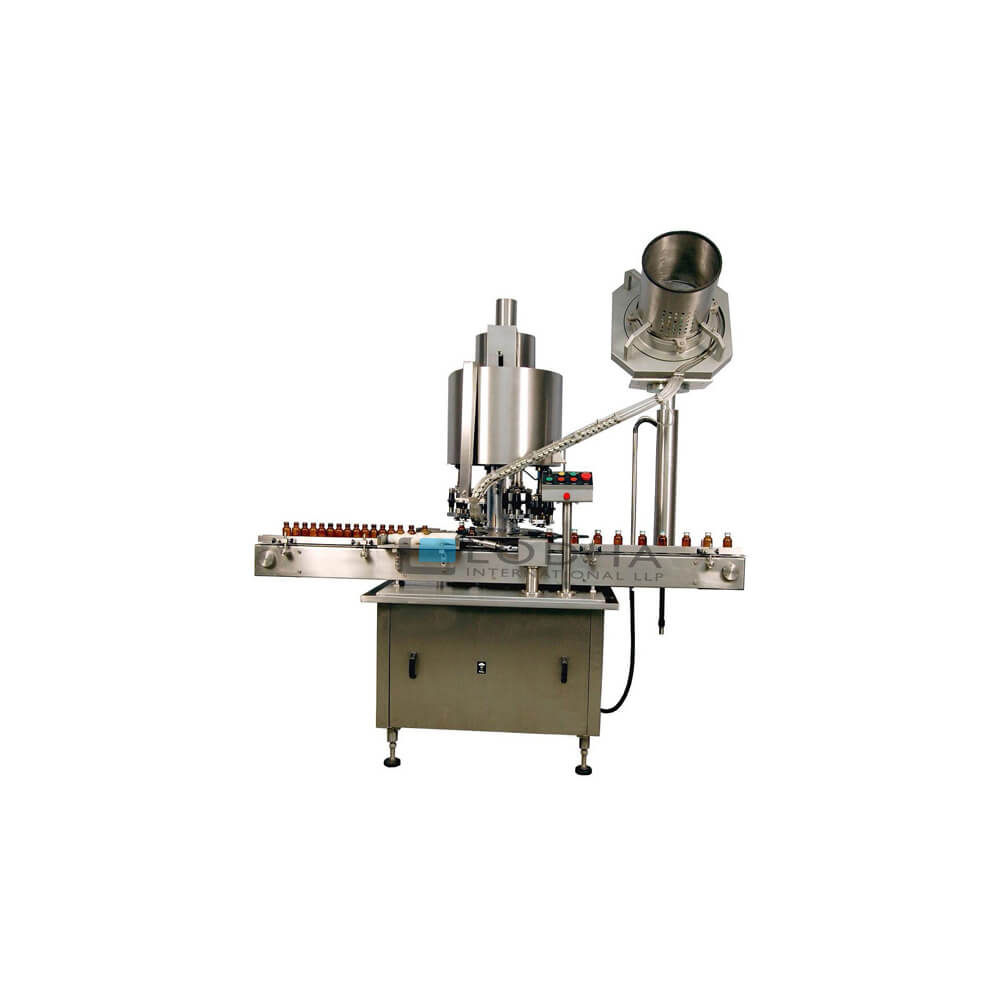Get in touch! +91 9687731331 | +91 9687631331 | info@lodhapharma.com
What You Should Know About a Bottle Capping Machine?
Before you buy a Bottle Capping Machine, you should know about its functions and features. Learn how it is classified and how much it will cost. Then, you can decide whether it is the right machine for you. Here are some important features and benefits to consider:
Features of Bottle Capping Machine
Bottle capping machines can be configured to automatically insert bottle caps into bottles. They store the caps in a tank or container and can quickly add them to bottles. To make use of these machines, you must first set the width and type of cap you want to insert. Some machines have special tools or jigs to help you with this process, while others simply require an operator. In any case, a bottle capping machine is a valuable investment for your company.
The Single-Head Automatic Bottle Capping Machine features a torque-controlled automatic system that is capable of handling both fragile and standard caps. The automatic bottle capping machine can regulate the torque of each head.
Bottle Capping Machine Functions
The maintenance of a bottle capping machine is a significant part of keeping the machine in good condition. Even if these machines are relatively easy to maintain, they must be kept in good condition to function efficiently. Without proper maintenance, a bottle capping machine will gradually lose its efficiency and start to break down, which can lead to a major loss of production. To keep your bottle capping machine in top shape, here are some of the basic steps you should take:
A capping machine is a vital component in bottling automation. It applies metal or plastic thread lids, caps, and plugs on bottles or containers. These machines ensure a sanitary work environment and high production rates. Furthermore, these machines also contribute to a more affordable manufacturing cost.

Classification of Bottle Capping Machine
The classification of bottle capping machines varies according to the type of containers they can handle. Fully automatic machines are designed to apply caps to a wide variety of containers, while semi-automatic machines require assistance from the operator. Some machines have the option of placing a cap manually on each container while others are fully automatic and require the operator's input. This difference in classification affects the price as well as the amount of repeat business.
Screw caps are the most common bottle caps. Screw caps are applied with a rotating screw structure, which generates high axial force when tightened. Screw caps are also easy to realize self-locking functions. Snap lids, on the other hand, are fixed to the container by a claw. Screw caps are common for beer bottles and can be applied by hand or automated machinery. Each of these types of closure requires a different type of machine and requires precise positioning.
Bottle Capping Machine Costs
Owning and maintaining bottle capping machines can be a full-time job. However, it's essential for your manufacturing business's profitability. Since most manufacturers rely on their on-site production line, it's critical to keep spare parts on hand. This will save you time and money when you face equipment malfunctions or looming breakdowns. Here are some costs of owning and operating a bottle capping machine.
Regular maintenance of bottle capping machines is an essential part of their functionality. Consistent maintenance ensures optimum performance and gives you peace of mind. A poorly maintained machine will eventually run at less than optimum capacity, and that can cost you a significant amount of revenue. To keep bottle capping machines in working order, make sure to regularly check their parts, especially the gearbox. Ensure that speed harmony is maintained between the various components.
In Conclusion
As the demand for packaged food has increased across various sectors, the market for bottle-filling machines has also increased. In addition to the food and beverage industries, capping machines are used in chemical, pharmaceutical, and cosmetics manufacturing industries. These machines help in enhancing the manufacturing process, and sanitization is likely to increase the demand for this equipment.

